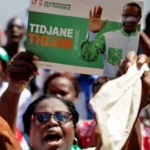In recent months, the United States has taken a firm stance by reducing aid to Zambia, citing concerns over widespread theft and mismanagement of medicines intended for vulnerable populations. This move underscores the growing international pressure on Zambia to address corruption and ensure that humanitarian resources reach those in need.
The Context of US Aid to Zambia
The United States has been a significant supporter of Zambia’s health sector, providing millions of dollars annually to combat diseases such as HIV/AIDS, malaria, and tuberculosis. These funds are crucial for maintaining healthcare infrastructure, purchasing medicines, and training healthcare workers. However, recent investigations have revealed troubling patterns of systematic theft and misappropriation of medicines meant for public clinics and hospitals.
Evidence of Systematic Medicine Theft
Multiple reports and audits conducted over the past year have highlighted alarming levels of medicine theft within Zambia’s health system. For instance, a 2023 report by an independent watchdog revealed that over 30% of medicines allocated for HIV treatment were unaccounted for, with significant portions suspected to be diverted into the black market.
Furthermore, whistleblower testimonies and leaked documents point to a network of officials and middlemen involved in orchestrated theft schemes. These schemes often involve falsified inventory records, bribery, and collusion with unauthorized vendors. The stolen medicines frequently end up being sold illegally, depriving patients of essential treatments and fueling the growth of counterfeit pharmaceuticals.
Impact on Public Health and Trust
The systematic theft has had dire consequences for Zambia’s public health. Patients face stockouts of critical medicines, leading to treatment interruptions that exacerbate disease progression and resistance. The erosion of trust in the healthcare system discourages individuals from seeking care, further worsening health outcomes.
Additionally, the theft undermines Zambia’s efforts to meet international health targets and hampers the country’s reputation on the global stage. International donors, including the US, rely on transparency and accountability to ensure their aid effectively benefits the intended populations.
US Response: Cutting Aid as a Signal
In light of these findings, the US government announced a temporary suspension of certain aid programs aimed at Zambia’s health sector. According to a State Department spokesperson, this decision serves as a “necessary measure to encourage transparency, accountability, and the rooting out of corruption.”
The aid suspension is not intended as a punitive action but as a call for reforms. The US has emphasized the importance of strengthening internal controls, improving oversight mechanisms, and ensuring that medicines reach patients rather than the black market.
Broader Implications and Future Steps
The US’s move highlights the importance of accountability in international aid programs. It sends a clear message that corruption undermines development efforts and endangers lives. For Zambia, this situation presents an opportunity to implement reforms, improve governance, and rebuild trust with international partners.
The Zambian government has acknowledged the issues and pledged to investigate and address the thefts. International partners, including the US, have offered technical and financial support to bolster anti-corruption measures and improve supply chain management.
Conclusion
The decision by the US to cut aid to Zambia over systematic medicine theft underscores the critical need for transparency and accountability in managing humanitarian resources. While the suspension poses challenges, it also serves as a catalyst for meaningful reforms that can restore confidence, improve health outcomes, and ensure that aid reaches those who need it most. As Zambia works to combat corruption, the international community’s support remains vital in building a resilient and equitable health system.
Email Us on editorial@nnafrica.com













